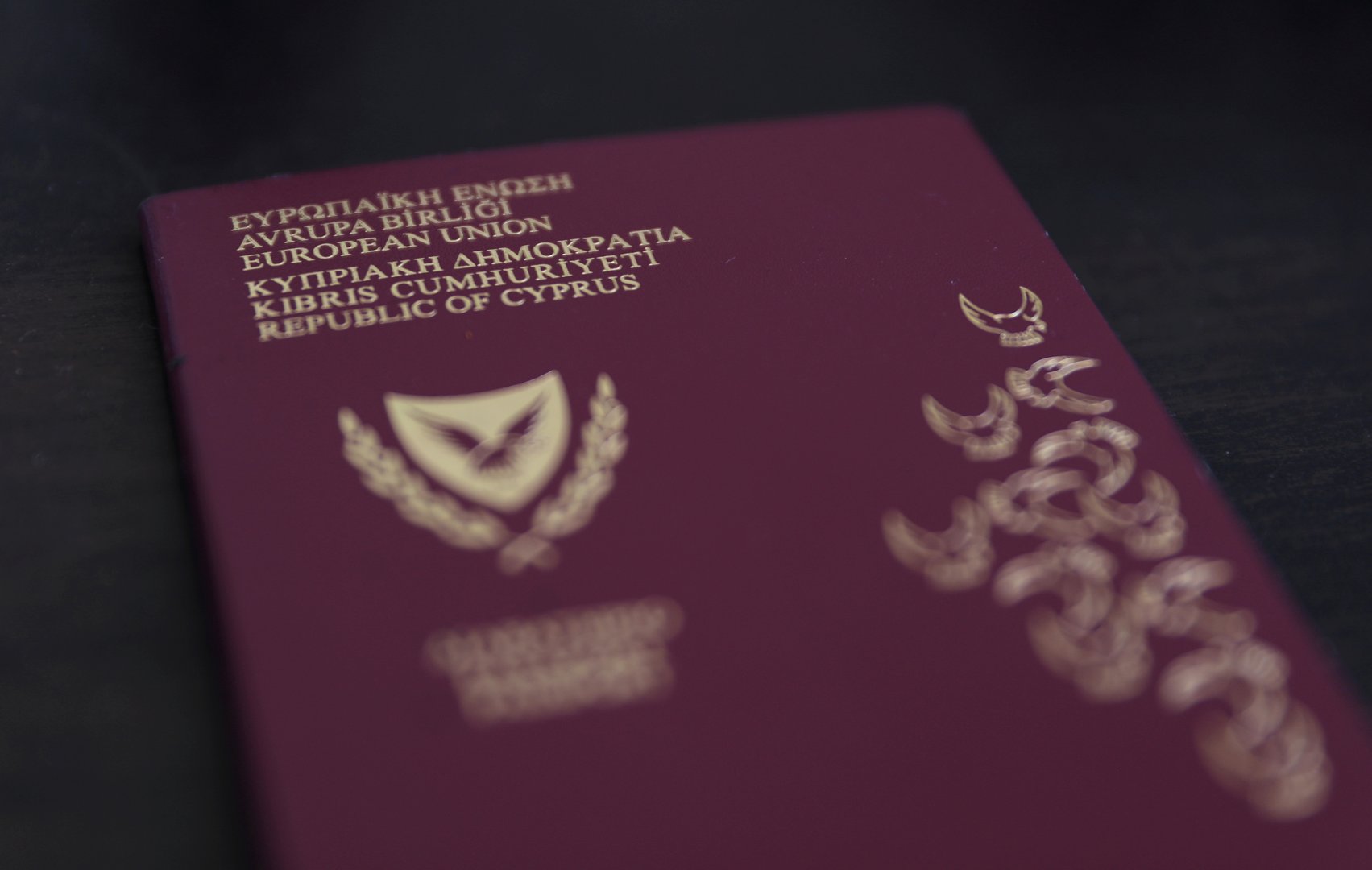The House interior affairs committee on Thursday discussed a government bill to repeal the legislation which allows for Cypriot passports to be granted to foreign investors, thus removing the provisions which allowed for the country’s ‘golden passports’ scheme.
Beyond that, the bill also definitively ends the powers vested in the cabinet up until now to grant Cypriot citizenship to foreign investors.
While the ‘golden passports’ scheme itself was scrapped following intense media pressure in 2020, the statute allowing for its existence has not yet been repealed. If the government bill passes through parliament, any future citizenship-through-investment scheme would require a fresh act of parliament to come into existence.
Committee chairman and Akel MP Aristos Damianou described the bill as “necessary”, saying that Cyprus had “found itself at the centre of intense international pressure and criticism over the issue of ‘golden passports’”.
He said it is “clear that parliament must move in the right direction” and adopt “regulations which enhance the state’s transparency and credibility”.
While Damianou noted that passing the repeal bill is necessary – as in return the European Commission will terminate its infringement proceedings – he also lamented that Cyprus “shot itself in the foot”.
Effectively Cyprus is being forced to relinquish its sovereign rights – the ability to naturalise foreign investors.
“The sins of the father are visited on the son,” Damianou remarked, citing the phrase from the Bible.
Because the specific ‘golden passports’ scheme was so corrupt, he said, Cyprus will now be stripped of the power to have any citizenship-by-investment programme.
“It is a negative development, in that the Republic of Cyprus is being punished for [prior] political expediencies, through which some people made a great deal of money.
“But at the same time, it’s also an obligation which we cannot circumvent, as Cyprus risks being slapped with heavy fines for breaching EU law, other than the violations of domestic [Cypriot] law which took place with the party of the golden passports.”
At the same committee session, a representative of the attorney-general’s office explained that the bill had been brought about because the European Union has launched infringement proceedings against the Republic of Cyprus over the ‘golden passports’ scheme, which is still pending.
In October 2020 Brussels launched infringement proceedings against both Cyprus and Malta over their ‘golden passport schemes, which granted EU citizenship in exchange for investment without a genuine link to the country. This was seen as undermining the integrity of EU citizenship.
The attorney-general’s representative pointed out that earlier this year, the EU had found that Malta’s ‘golden passports’ scheme had violated EU law and constituted a “commercialisation of the grant of nationality of a member state and, by extension, of [EU] citizenship”.
Following that decision, the representative said, the EU contacted the Cypriot attorney-general’s office and “requested clarification on how Cyprus intends to comply” with EU law over the matter, with attorney-general George Savvides and his deputy Savvas Angelides subsequently holding meetings with EU representatives to discuss it.
The representative said that at those meetings, “it was explicitly indicated that the programme should be completely abolished”.
Cabinet had approved the proposal earlier this month, with the government also planning to introduce a 60-day time limit for people whose citizenship is rescinded to be able to appeal the decision to rescind their citizenship at the independent committee.
Government spokesman Konstantinos Letymbiotis said at the time that in accordance with the new amendments, the government will be required to publish a notice in the government gazette regarding any decision to rescind Cypriot citizenship.
He said the government’s aim with the plans is to “restore the reputation of the Republic of Cyprus at the international level”.
Former president Nicos Anastasiades scrapped the citizenship-by-investment scheme in 2020, with the European Union having launched legal proceedings over claims the scheme had been used to sell passports to dubious individuals.
The matter was also the subject of a documentary published by Al Jazeera in 2020, which saw both the House president of the day Demetris Syllouris and Akel MP Christakis Giovani resign from their posts.
In the documentary, undercover reporters played the role of agents acting on behalf of a fictional Chinese businessman with a criminal record, aiming to secure him Cypriot citizenship.
Syllouris, Giovanis and others were shown offering to help the man in his quest for citizenship despite his (supposed) criminal record. The two former MPs remain on trial.
Meanwhile, former transport minister Marios Demetriades is also on trial over “suspicious” naturalisations carried out under the same scheme.
Letymbiotis said at the start of the month that the government has thus far rescinded the citizenship of 150 people who were naturalised under the scheme – 41 investors and 109 family members.







Click here to change your cookie preferences